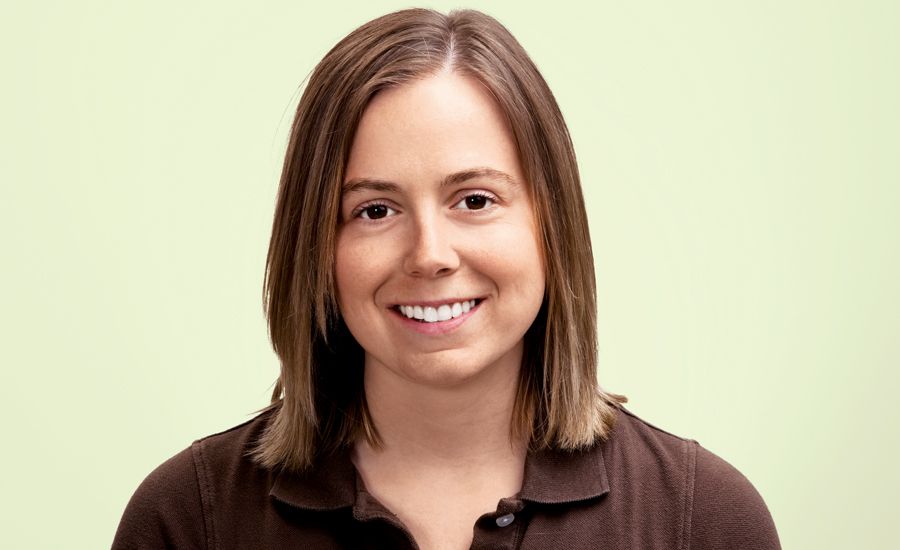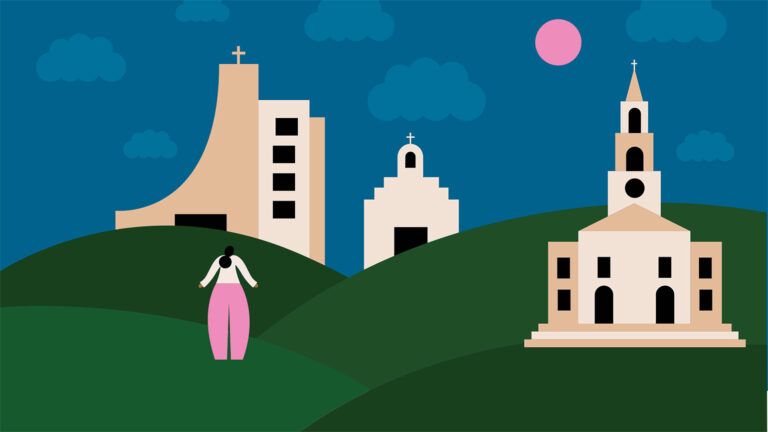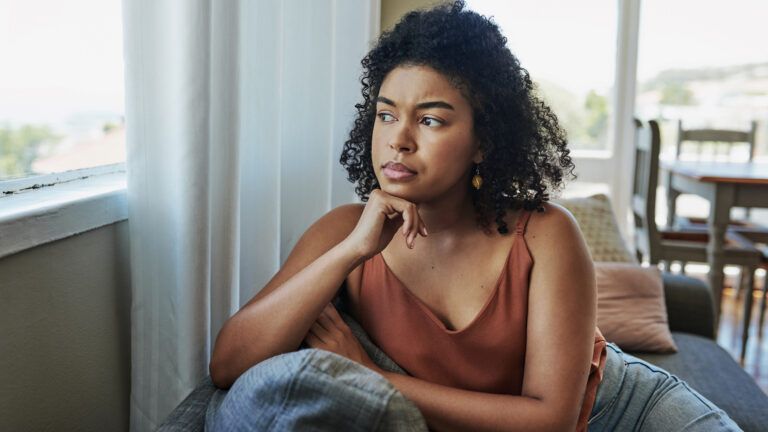I sat across the desk from the head of the university’s physical-therapy program.
“You received an education degree six years ago but never worked as a teacher,” she said, peering at my résumé. “You waitressed at Olive Garden, then quit last spring. Help me understand why you want to learn to be a physical therapist.”
I could tell she thought I was just another young person with no direction. A year ago she might have been right.
I was happily living at my parents’ home in Michigan, taking life as it came (or not). But that was before the accident. I took a deep breath. “Let me tell you,” I said, “how I got here.”
Five months earlier, in April 2006, my little sister, Laura, was in a horrible crash. A senior at Taylor University in Indiana, she was riding in a van with eight other students and staff, returning from working at a college banquet.
A semi crossed the interstate median and crushed the van. Five passengers died. Rescue workers found Laura’s body 50 feet away, her purse nearby. Her injuries were so severe and disfiguring that the proximity of her purse was the only way paramedics could put two and two together and identify her.
My parents and I rushed to the hospital in Indiana, three hours away, where Laura lay in a coma. We lived by her side, praying for a miracle. My two younger brothers, Mark and Kenny, joined us as often as they could take time off from work.
That first night in the ICU she looked like a mummy, her head wrapped in bandages, her sparkling blue eyes hidden behind bruised and swollen eyelids. About all that was recognizable were the tufts of blonde hair sticking up through the bandages.
My sister—the outdoorsy athletic girl, the one I’d taught to play guitar—seemed far away, beyond my reach, but not beyond God’s.
In a couple of weeks they took off some of the bandages. A few days later she opened one eye and slowly emerged from the coma. It was incredible—a front-row seat to God’s healing power!
The transformation was so amazing that some days it seemed like she was a different person.
Her recovery filled me with awe. God must have something pretty important planned for her—big enough to preempt death. I wondered if I was part of this plan too.
Before the accident, just thinking about hospitals made me squeamish. Now, I was focused on helping Laura. I quit my waitressing job to be with her, assisting with her physical therapy and just talking to her, even though she couldn’t say anything back yet.
Three weeks after the accident we moved Laura to a rehabilitation center in Grand Rapids, Michigan, only 40 minutes from our home. She was doing well enough that we felt comfortable sleeping at home. Each morning I leaped out of bed to get to the center for Laura’s physical-therapy session. My parents usually came along.
One day the director called me into her office. “You’re doing great things with your sister. You have a lot of natural skills,” she said. “You should think about becoming a physical therapist.”
I laughed. “I appreciate the compliment,” I said. “And the career advice. But you wouldn’t think that if you knew how bad I am at science. I’m just here to help Laura.”
One morning in late May, about five weeks after the accident, I mentioned to the therapist that Laura hadn’t been outside. “Well, then, it’s time we took her,” she said. I pushed Laura’s wheelchair alongside a fountain, then took her hand and dipped it in the water. “Cold,” Laura said.
“That was a great idea,” the therapist said. “You’re helping her brain make connections again.”
All the things I’d been doing in the last few weeks, strengthening Laura’s hands and arms, doing small exercises for manual dexterity—it was exciting to be part of her healing. I felt a real sense of purpose.
Except, it was the oddest thing. The more Laura became herself, as her ability to speak returned, as bandages were removed, somehow the less she seemed like the Laura I knew.
“Good work,” the therapist said as we left the fountain. “Laura, can you thank your sister?”
“Thank you, Carly,” she managed to say with some effort.
“Carly? Why did she call me that?” I asked the therapist.
“It’s normal for her to be confused,” she said. “Give her time.”
Still, I was alarmed. Frightened. I tried not to think about it, but I couldn’t get over the haunting feeling: What if this wasn’t Laura?
In the next session, we sat two feet apart, tossing a beach ball back and forth. I stared intently at her face, still distorted by the accident, trying to match every detail against my memories of Laura’s. After the session, I knelt so we were eye to eye. “I want to ask you a question. Can you tell me your name?”
Slowly, with great effort, her mouth formed the word: “Whitney.”
“You’re doing so well,” I said, squeezing her hand. My mind was racing. “What are your parents’ names?
She haltingly said, “Newell and Colleen.”
Our parents were Don and Susie. She wasn’t my sister.
I wheeled the young woman—suddenly a stranger—back to her room then rushed to find Mom and Dad. They were sitting on a bench down a hallway. “She’s not Laura. Her name is Whitney,” I gasped.
Mom and Dad said they too had begun to question whether it really was Laura. But they had been waiting to see if I shared their doubts. It all seemed so unreal and impossible. She looked so much like Laura, same blonde hair, same athletic build. How could it not be her?
I slumped on the bench and my parents went to tell the rehab center’s director our fears. All that time I’d spent with her. All that I was doing for her. God, how could I have not known she wasn’t my own sister?
Finally, my parents returned. “Her name is Whitney Cerak. She’s a freshman at Taylor,” Dad said, holding my hand. “The director called the coroner’s office in Indiana. Their guess is that a paramedic put Laura’s purse next to Whitney on the rescue helicopter and at the hospital they assumed the ID was correct. I’m going to call the boys and ask them to meet us at home.”
It hit me as I sat in the backseat of the car on the drive home: My baby sister is dead. I’ll never see Laura again. I felt too stunned to process the information, my mind and heart on overload.
My dad pulled the car into the driveway and there were my brothers, Mark and Kenny. For the longest time we all held each other, grief spilling over.
That night, lying in bed, I struggled to make sense of it all. God, you have to know how much this hurts. Why would you put us through this?
I had been wrong about so many things! God hadn’t saved Laura’s life. He hadn’t needed me to take care of her. I hadn’t been singled out for anything. It seemed such a cruel and senseless thing for our family to go through.
The next morning all I wanted to do was stay in bed. Normally I would have been in physical therapy with Laura by this time. Except it wasn’t Laura—it was Whitney. Whitney’s family was with her now, rejoicing in their own miracle.
The days that followed were like a whirlwind—me singing at the memorial service, more than 2,000 people attending, a private burial, a constant barrage of calls from the media.
The bizarre story had gone national, then global. I lived in a kind of depressed daze. The grief was less raw, but the confusion was deeper. I felt like I was emerging from my own coma, searching for my own identity.
There was only one lesson from all of this that was painfully evident: Life is short. I needed to find something to do, something to help me get out of bed in the morning. But what? I’d quit my job.
My mind kept circling back to what I’d lost: Laura and those physical-therapy sessions. There had to be something else.
What was I missing? Then I remembered the conversation with the rehab center’s director. What had she said? “You have a real gift for this, a lot of natural skill.”
Working with Whitney had been an amazing experience, perhaps the most fulfilling of my life. Had God been trying to tell me something? Could I actually have been where he wanted me to be all along, helping Whitney?
I needed to talk this through with someone. I grabbed my cell phone and called my best friend. “I’m thinking about going back to school to study physical therapy,” I told her. “Am I crazy? You know I did awful in math and science.”
“Tell me why you want to do this,” my friend said.
“All I know is that I want to help other people’s Lauras,” I answered.
Now months later that was the same answer I gave to the head of the university’s physical-therapy program.
She nodded. “I think there’s more to it than that. Physical therapists see what’s possible, beyond what the patient can sometimes envision. They help patients realize what they’re capable of. Maybe that’s why you’re here today. You were able to help Whitney.”
Last spring I graduated from the two-year program. Last May Whitney graduated too, from Taylor, on schedule.
I sat in the audience as she crossed the stage to receive her diploma, a lump in my throat as I thought about all those nights I sat by her side. We’ve become good friends. After the ceremony I gave her a huge hug. “I’m so proud of you,” I said. “You’ve come so far.”
And I had too, a journey that took me from grief and tragedy to an incredible healing of my own.






